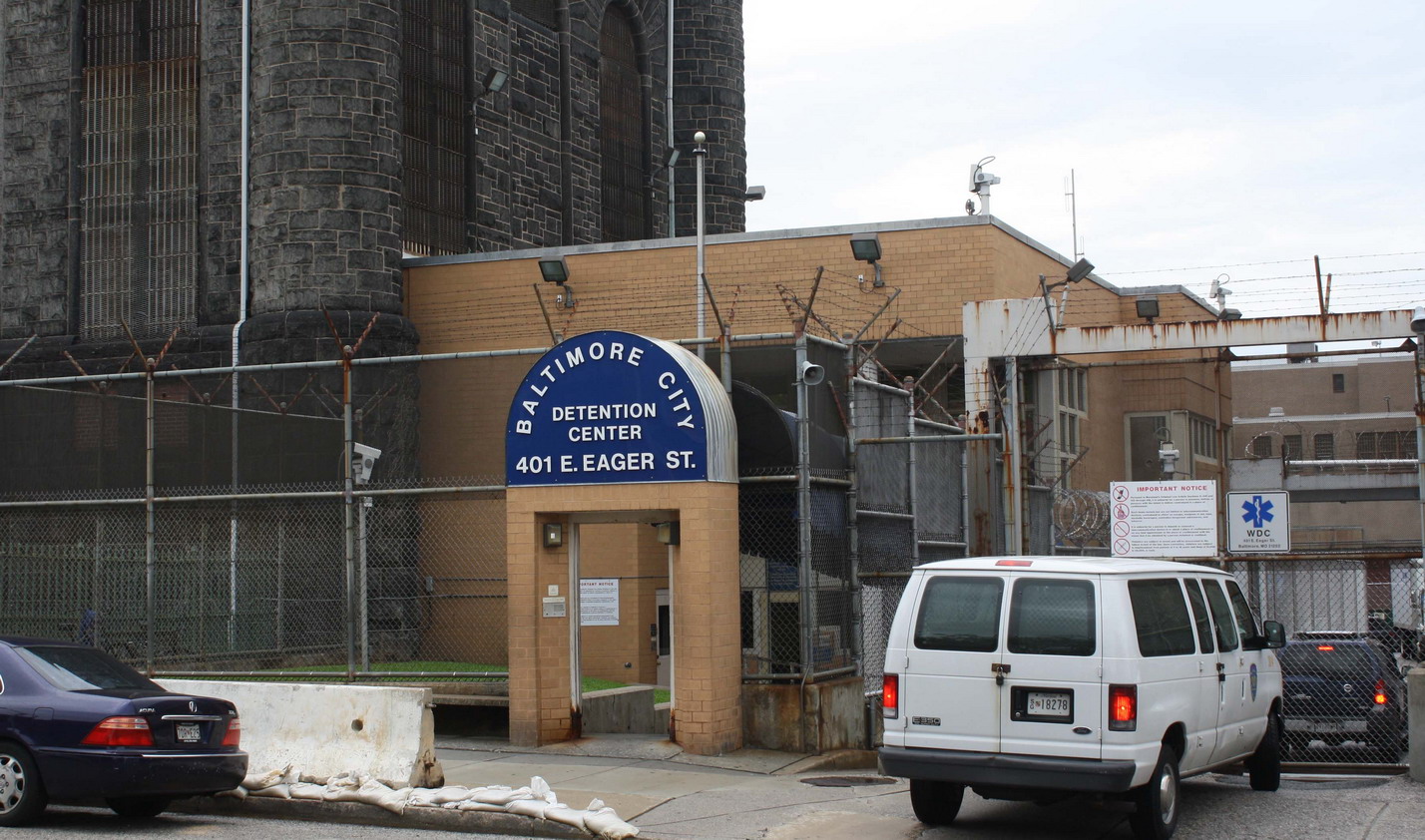Correctional officers respond to Baltimore City prison scandal
By Becca Heller
 The union that represents Maryland correctional officers responded Tuesday to the scandal that led to the federal indictment of 13 Baltimore City Detention Center correctional officers for helping a national gang run a criminal enterprise within the walls of the prison.
The union that represents Maryland correctional officers responded Tuesday to the scandal that led to the federal indictment of 13 Baltimore City Detention Center correctional officers for helping a national gang run a criminal enterprise within the walls of the prison.
During the news conference, officers, lieutenants, and American Federation of State County and Municipal Employee (AFSCME) representatives discussed the challenges of working in a high-security working environment and the breakdowns that led up to an investigation that found more than a dozen correctional officers guilty of aiding inmates and leaders of the Black Guerilla Family, in the state-run prison, along with allegations that four of the officers were having sex with the gang’s leader.
Lack of staffing, training identified as systematic weaknesses
Union representatives identified several systemic weaknesses at the detention center — weaknesses that are likely rampant in prison systems statewide. Chief among them was the critical lack of staffing in the detention center.
“Every institution’s staffing levels are low, and on top of that, right now they are collapsing posts inside our institutions to save on overtime,” said Lieutenant Steve Berger of the Maryland Correctional Training Center. “One of the main duties of a correctional officer is to observe inmate activity, and when you have less staff available to observe, then you have more illegal activity going on inside the institution.”
According to legislative budget analyses, In the past two fiscal years, the state corrections budget has grown by more than 2% and there has been no substantial reduction in overall staffing.
In fiscal 2013, the Department of Public Safety and Correctional Services exceeded its overtime appropriation by $7.8 million and needed a deficiency appropriation, according to a budget analysis by the Department of Legislative Services. The budget figure for fiscal 2014 calls for overtime to be funded at $42.5 million, the same level as fiscal 2013, even though it was underfunded by nearly $8 million that year.
Another element touched upon was the need for better training of officers.
“I think training is key,” said Corporal Sheila Hill of Patuxent Institution. “We’re talking about taking somebody who’s coming in off the street and putting them into a situation where they have to deal with repeat offenders.”
Hill and others discussed the challenges that officers face on a daily basis. Oftentimes, she said, an inmate will test officers by first asking them for something small like a ball-point pen or a sandwich. Depending on the officer’s response, they know whether or not they can ask for more.
Union: vast majority of correctional officers do a good job
One controversial aspect of the recent indictments was that four of the 13 officers charged with smuggling contraband were women who had had intimate relationships with Tavon White, the inmate most connected with the scandal. It’s alleged that White fathered five children with the four female correctional officers, and according to the official FBI report, two of them had his name tattooed on them — one on her neck, and the other on her wrist.
“The vast majority of correctional officers at this facility are women. Four of them are alleged to have fathered this man’s child,” said Jeff Pittman, a communications specialist with AFSCME. “These are thirteen individuals out of 7,500. We should not paint with a broad brush. We shouldn’t discriminate against women and men who are doing a good job because a few folks are accused of not doing the right thing.”
Integrity should be top of hiring criteria, union says
In general, the news conference placed little emphasis on the impact of gender relations and only briefly touched on implementing better background checks for incoming officers. They did, however, continuously reference a more intangible element of the correctional system: the importance of hiring officers of integrity.
“What we need are women — and men — of integrity to do these jobs,” said Pittman.

MarylandReporter.com is a daily news website produced by journalists committed to making state government as open, transparent, accountable and responsive as possible – in deed, not just in promise. We believe the people who pay for this government are entitled to have their money spent in an efficient and effective way, and that they are entitled to keep as much of their hard-earned dollars as they possibly can.
